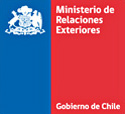Friends,
Allow me to extend a very warm welcome to you and to thank each of you for being here, in this forum for shared reflection about ways towards inclusion and security for our nations.
It is a reflection in certain tranquility, of course. Today we do not see on the international stage the large-scale inter-State warlike confrontations that were common in the twentieth century. However, this does not mean that we are living in a peaceful and safe world.
The so-called "traditional threats to security" have largely been replaced by "new threats" of a non-State and non-military nature. In other words, by intranational wars and transnational dangers such as terrorism, organized crime, drug trafficking, money laundering, arms trade, trafficking in persons, natural disasters, the spread of disease and the deterioration of the environment.
In order to understand and tackle these new challenges, we must adopt a multidimensional approach that explains the causes underlying those threats. These include socio-economic, gender, ethnic, tribal, religious or ideological tensions that may have local, regional or global effects.
This is the only way in which we can effectively contribute to conflict prevention and peacebuilding in the world. These are the founding goals of this United Nations organ.
We therefore believe that the debate on inclusive development and peace should be held in this forum. Because we understand that peace is a prerequisite for the promotion and protection of fundamental rights and that, in turn, social inclusion and inclusive development are the conditions for peace.
In this connection, I highlight and share the opinion of the Secretary-General, who said last September that "Over the longer term, the biggest threat to terrorists is not the power of missiles. It is the politics of inclusion [...]. It is education, jobs and real opportunities".
These are also effective tools for preventing other forms of conflict, for building peace, for consolidating democracy and the rule of law, for safeguarding individual freedoms and, ultimately, for constructing fairer societies.
We are fully aware of this. This is why in Chile we are making great efforts to narrow social gaps and prevent segments of the population from being left behind.
We believe that closing gaps in income and position in the social structure is as important as promoting equal opportunities. It is not only a moral imperative but also a requirement for medium-term and long-term development, for political stability and for peace.
We have made progress in this direction but we still have a long way to go.
Unfortunately, in many countries of the world, the distance between the reality and that ideal of inclusion and justice is huge and does not appear to be lessening over time.
This situation is particularly worrying in multinational, multiethnic and multicultural States in which the rights of minorities are not respected and in those where powerful minorities oppress weak and dispersed majorities.
In both cases, frustration and rancour create propitious conditions for radicalization and armed violence. When it occurs, this usually causes incalculable suffering that crosses national frontiers and can even destabilize entire regions.
Recent events in the Middle East and Africa provide examples of this, as those in Iraq, Syria, Yemen and Somalia.
But these are not the only areas of the planet affected by violence and insecurity.
Latin America, which is the region of the world with the most inequality, is also the region with the highest homicide rate and one of the regions most affected by drug trafficking and organized crime. This does not look like mere coincidence.
And in Western Europe terrorist violence, which we emphatically condemn arises in a context of growing unease, in which the most pessimistic speak of a failure of the model of multicultural coexistence, and intolerance and phobias of all kinds are on the increase.
As emphasized in Security Council resolution 1325 (2000) and as we have stated on other occasions, we maintain that conflict prevention, peacebuilding, construction of democratic institutions and development require the participation of all stakeholders. And allow me to make special mention of the contribution of women; we are called on to play a leading role in the creation of better living conditions for the planet.
When it occurs, the exclusion of such a significant part of the population makes it not only difficult but often actually impossible to achieve these goals.
In contrast, the example of Liberia shows that, when processes are inclusive, they are more likely to be successful.
National reconsolidation and peacebuilding were achieved through the creation of mechanisms for inclusion of all concerned sectors, where women – and particularly Leymah Gbowee, who is honouring us with her presence – played an outstanding role.
In recognition of her work, Laymah Gbowee, together with the current President of Liberia Ellen Johnson Sirleaf and the Yemeni activist Tawakkul Karman, received the 2011 Nobel Peace Prize.
Friends,
Experience shows that the debate which we are proposing on inclusive development is, of vital importance, especially if we bear in mind that what we are seeking is to contribute substantively to the building of a more peaceful, safe and fair world for all.
I therefore invite you to discuss and share experiences and views with these objectives in mind.
Thank you.
